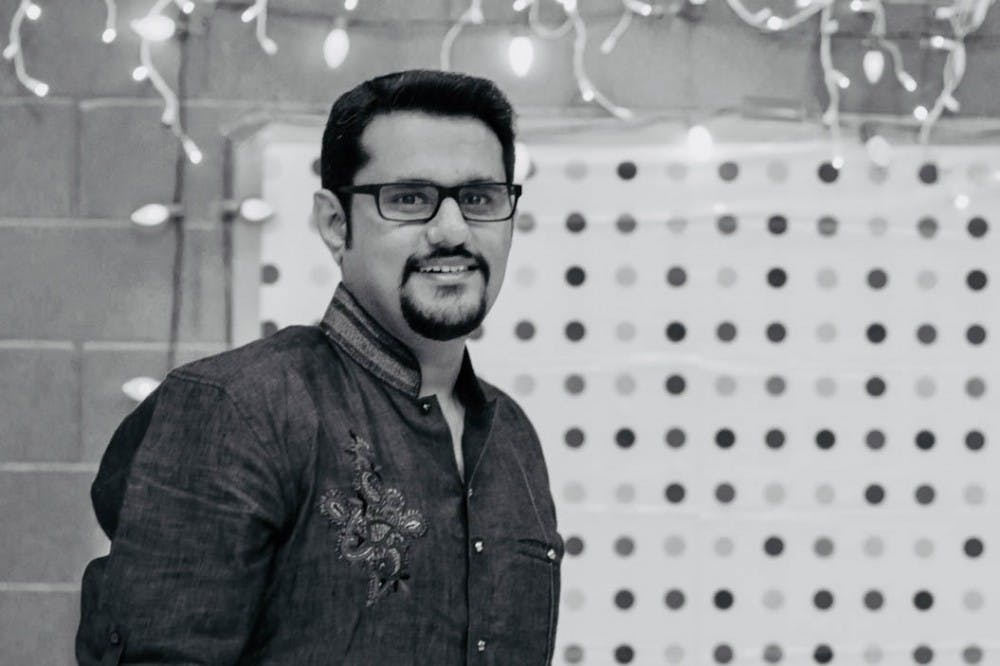Unlike the U.S. education system that has multiple opportunities for lower-income households, in India, many impoverished children drop out of school and lack access to higher education.
According to a UNESCO 2011 report, there were over 265 million people from the age of 15 and older that make up the illiterate population in India.
In the U.S. there are just over 30 million adults who can't read above a third grade level, according to ProLiteracy.
There are more than 50 chapters in three different continents that are part of Asha For Education, an organization started at the University of California Berkeley in 1991. Asha means hope in the Sanskrit language, and the group represents the hope for changing children's lives in India through multiple projects.
The Arizona chapter for Asha For Education is an ASU non-profit student organization dedicated to supporting the education of impoverished children in India's urban slums and rural districts. The chapter started in 2015 and holds the same core values as every chapter.
Asha's Arizona chapter is currently working on three projects involving fundraising for schools to be built, paying teachers fair wages and ensuring that nutritional and healthcare needs are met to directly help children in India.
One of the projects the Arizona chapter has helped fund was the Reward Trust project, which has the goal of targeting understaffed government schools in the Kancheepuram district in India and finding teachers who are willing to work there.
Varadaraj Shastry, Mouna Nuchimanianda and Rashmi Krishna are all from India and came to the U.S. for the first time to pursue their masters at ASU.
All three graduated in 2014 and are part of the Arizona chapter of Asha for Education.
Shastry is from Chennai, India and is a team member volunteer who was introduced to Asha in 2017 by Mouna. In addition, Shastry is also a part of Association of India Development.
Shastry received his masters in electrical engineering in 2014 and has noticed a difference with the universities in India compared to those in the U.S.
"It is more flexible here (in the United States). It's not as easy to change your major in India," Shastry said.
While growing up in India, Shastry has seen how the lack of access to higher education affects children.
"Many kids only think of primary school," Shastry said. "If you do get your (college) education, you are able to work successfully, and when you don't, a lot of kids drop out of school to help support their family and will work in factories."
Nuchimanianda is from Bengaluru, India and is the coordinator who started the Arizona chapter a year after graduating with her masters at ASU in electrical engineering. She said socio-economic class does play a part in whether families prioritize education.
"It's important for people to know their children can pursue a degree and support the economy (in India)," Nuchimanianda said.
Though Nuchimanianda is far away from her home in India, she wanted to stay connected to her community. She started the Arizona chapter to help further support for the worldwide Asha organization due to its mission of helping the disadvantaged children in India.
"I've seen kids eight to nine years old helping support their families by selling flowers," Nuchimanianda said.
With the help of ASU volunteers, Nuchimanianda said the Arizona chapter has raised about $6,000 to $7,000 since 2017.
"It took us two years to find volunteers and convince people we are capable of fundraising," Nuchimanianda said.
Krishna is also from Bangalore, India and knew Nuchimanianda before coming to the U.S. to also pursue her masters in electrical engineering. Like Shastry, Krishna is also a team member volunteer.
Krishna said in India, many local teachers are not paid enough to teach, and the government doesn't focus their infrastructure budget toward schools.
Being away from home in another country for the first time was a challenge for Krishna. After graduating, she said she had a lot of free time, so she got involved with Asha's Arizona chapter.
"Students have the opportunity to volunteer and go on-site in India to the different schools and meet the children the chapter is supporting," Krishna said.
On Nov. 9th, the chapter will be hosting their second annual primary fundraising event at the Diwali Fiesta at the Sun Devil Fitness Complex on the Tempe campus. Attendees can enjoy festivities, music, food and check out a booth that will be selling traditional Indian jewelry.
If interested, tickets can be purchased here and all profits from the event will directly go to supporting the education of children in India.
Reach the reporter at mdhunte2@asu.edu or follow @masaihuntertv on Twitter.
Like The State Press on Facebook and follow @statepress on Twitter.




